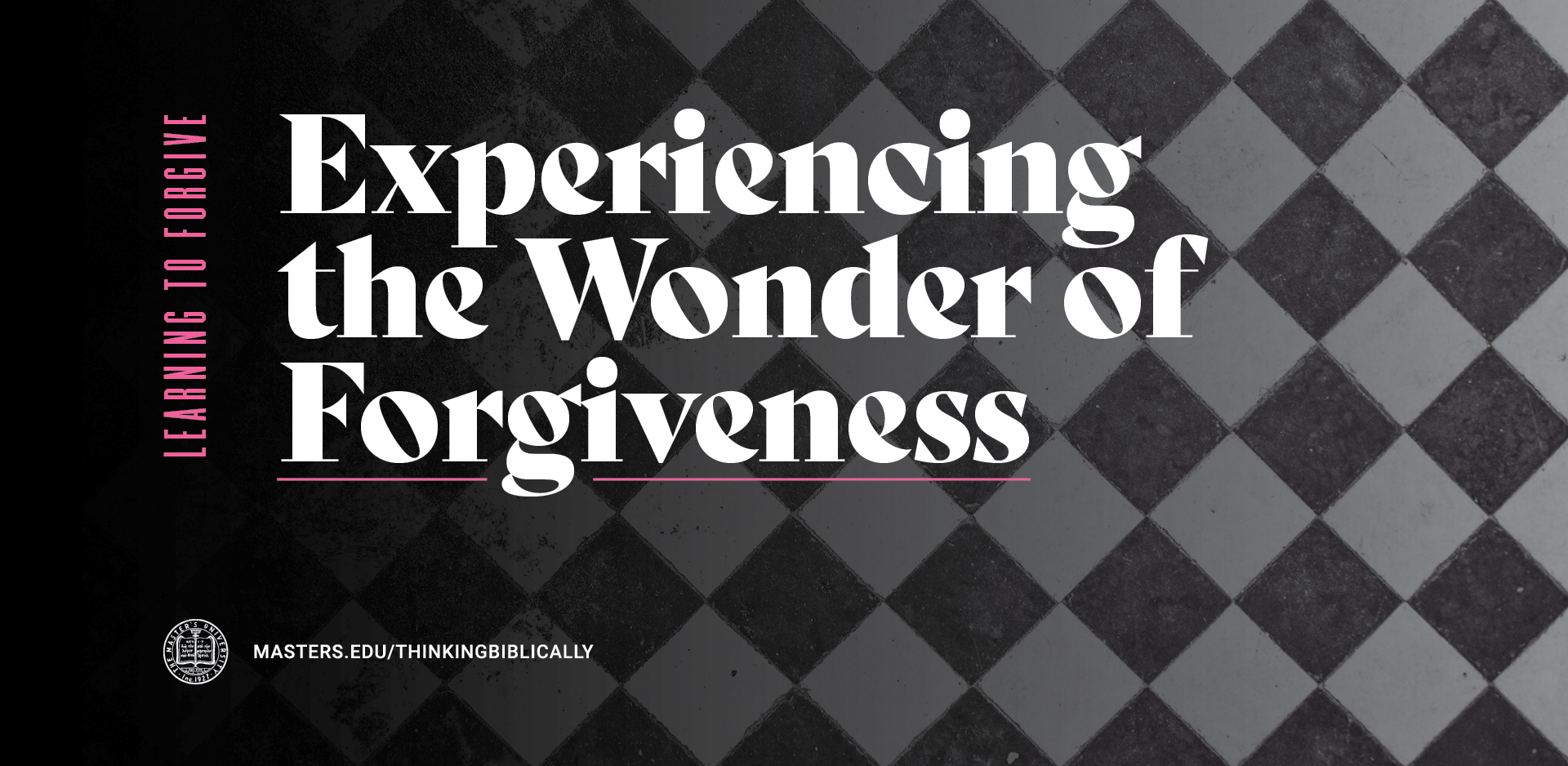
And I pray that the fellowship of your faith may become effective through the knowledge of every good thing which is in you for Christ’s sake. (Philemon 6)
Let me ask you a question. When you became a Christian, did God put good things in you?
The answer is yes. You’ve been blessed with all spiritual blessings in the heavenlies in Christ Jesus (Ephesians 1:3). You are a new creation (2 Corinthians 5:17). As a Christian, you have many good things inside of you.
So then, the next question is this: How do I learn about the good things inside of me? Do I read about them in a book? The word that Paul uses here, translated “knowledge,” is epignsis. This word can be translated, “deep knowledge,” “rich knowledge,” or “full knowledge.” It has the idea of experiential knowledge.
This is the sort of knowledge that comes through personal acquaintance with truth. It is the knowledge of experience.
So track what Paul is saying. He’s saying, “Philemon, if you forgive this guy, you’re going to immediately experience the good thing in you called forgiveness.”
You could read about forgiveness in a book, but you wouldn’t really know it, because you haven’t experienced it. You could hear somebody preach about forgiveness and how wonderful it is, but you really wouldn’t know it until you did it.
How do you get knowledge of the good things that are in you? By exercising them. You learn about the tremendous goodness of what God has put in you when you walk in obedience to His will and experience that goodness lived out in your life. God has given believers the capacity to forgive. But we won’t experience the goodness of forgiving until we do it.
We’ve all sat down and read books about people doing things that we’ve never done. Reading in a book about someone skiing down the Swiss Alps is not the same thing as the actual experience of flying down a mountain on skis.
The same is true in the spiritual realm. I can read the words on the pages of Scripture that define forgiveness, but I will never have the deep knowledge of forgiveness until I forgive. And that’s how I learn to know every good thing that God has put in me.
So the person who can forgive is someone who wants the full, rich, deep knowledge of every good thing that’s in him. And, importantly, he wants to develop and experience this deep knowledge “for Christ’s sake” (Philemon 6).
The Christian life, with all its deeds, joys, works, and responsibilities, is for the glory of Christ. It’s for Christ’s sake — for the sake of His name, His praise, and His glory. And frankly, if you’re devoted to that, you’re going to forgive, right?
I can’t say in a moment of unforgiveness, “I want to do all to the glory of Christ, but don’t think I’ll forgive you.” What I have to say is, “I’m not going to forgive you, because I’m not really interested in Christ’s glory; I’m interested in my vengeance.”
If you want to honor Christ, then you’ll forgive as He forgave you. If you want to honor Christ, you’ll obey what He told you to do. Surely, this was true of Philemon.
By this point in the letter, Philemon must have been saying, “Boy, I’m quite something.” And that’s exactly what Paul was hoping for, because he’s gearing up to hit Philemon with what he needs to do in verse 8. And Philemon will be feeling so good that he’s going to have to do it, or he won’t be living up to his press releases.
Anybody who loves the Lord Jesus Christ, anybody who loves the saints, anybody who loves the fellowship, anybody who loves true knowledge, anybody who loves the glory of Christ, is going to be a forgiver. That’s the character of the kind of people who forgive. And Paul establishes that character as the character of Philemon. And as we will see next time, Paul then uses that character as the basis for his call to forgiveness.
This post is based on a sermon Dr. MacArthur preached in 1991, titled “The Characteristics of One Who Forgives.”

The Master’s University and Seminary admit students of any race, color, national and ethnic origin to all the rights, privileges, programs, and activities generally accorded or made available to students at the school. It does not discriminate on the basis of race, color, national and ethnic origin in the administration of its educational policies, admissions policies, scholarship and loan programs, and athletic and other school-administered programs.
21726 Placerita Canyon Road
Santa Clarita, CA 91321
1-800-568-6248
© 2024 The Master’s University Privacy Policy Copyright Info
| Cookie | Duration | Description |
|---|---|---|
| cookielawinfo-checkbox-analytics | 11 months | This cookie is set by GDPR Cookie Consent plugin. The cookie is used to store the user consent for the cookies in the category "Analytics". |
| cookielawinfo-checkbox-functional | 11 months | The cookie is set by GDPR cookie consent to record the user consent for the cookies in the category "Functional". |
| cookielawinfo-checkbox-necessary | 11 months | This cookie is set by GDPR Cookie Consent plugin. The cookies is used to store the user consent for the cookies in the category "Necessary". |
| cookielawinfo-checkbox-others | 11 months | This cookie is set by GDPR Cookie Consent plugin. The cookie is used to store the user consent for the cookies in the category "Other. |
| cookielawinfo-checkbox-performance | 11 months | This cookie is set by GDPR Cookie Consent plugin. The cookie is used to store the user consent for the cookies in the category "Performance". |
| viewed_cookie_policy | 11 months | The cookie is set by the GDPR Cookie Consent plugin and is used to store whether or not user has consented to the use of cookies. It does not store any personal data. |